CSRC head vows to get tough on financial crimes
Updated: 2013-08-02 07:24
By Gao Changxin in Hong Kong (China Daily)
|
||||||||
Penalties for fraud will increase, whistle-blower rewards will also rise
China's top securities regulator vowed on Thursday to strengthen law enforcement as part of the move to reform the nation's scandal-ridden capital markets.
In an article published in the Party-run Qiushi Journal, Xiao Gang, head of the China Securities Regulatory Commission, vowed to establish a "proactive" legislation and law enforcement system that better reflects rapid changes in the capital markets.
Penalties for malpractice will increase and cooperation with law enforcement personnel will be strengthened. Meanwhile, larger incentives will be offered for whistleblowers and compensation for victims will increase.
"Lowering market entry requirements and strengthening law enforcement is the 'inflexion point' in the transformation of China's capital market supervision," wrote Xiao in the article.
Xiao's comments come as capital market crimes in China are becoming increasingly sophisticated, involving not only the management of public companies and brokerages but also those of financial institutions, as well as government officials.
The number of cases grew 21 percent year-on-year in 2012, and criminal cases were up 40 percent year-on-year in the first half of 2013.
More than half of the cases involved insider trading, and the incidence of fraud involving securities issues and information disclosure has risen quickly.
In a high-profile case in March, Sinovel Wind Group Ltd, a leading Chinese turbine manufacturer, restated its 2011 earnings lower by 22 percent, citing an accounting error. In May, it announced that it was under investigation by the CSRC for suspected misconduct including inflating earnings and revenue.
The CSRC's law enforcement work is "challenging", said Xiao. The agency investigates about 110 cases every year, but less than 60 cases end with the imposition of penalties, and about 30 of those are ultimately referred for criminal investigation. More than half of the cases end with no further action.
The CSRC has staff shortages, Xiao said. It has 600 law enforcement officers, accounting for 20 percent of its workforce. In comparison, the United States Securities and Exchange Commission has 1,236 enforcement officers, or 32 percent of its staff.
A lack of investment in technology is also making it hard for the commission to keep up with increasingly complex crimes, Xiao added.
Strengthening law enforcement is only one component of the CSRC's plan to revamp the domestic capital markets.
It has suspended initial public offerings for almost 10 months, as it works on new rules that would impose harsh penalties on fraud by investment banks.
More than 700 companies are waiting to float shares, but the CSRC hasn't said when the rules will be implemented and IPOs will resume, a show of the CSRC's determination to let the rules make a difference.
The CSRC is reviewing public feedback on a draft of the regulations released on June 7. The draft calls for penalties against investment banks and their employees for misconduct such as including inaccurate information in a prospectus and inadequate risk disclosure.
Companies whose profits drop by more than 50 percent in the year following an IPO will also face penalties.
In an article published on the People's Daily on Wednesday, Xiao promised to add more layers to the country's capital markets and provide more funding channels to small and medium-sized enterprises.
This year, the CSRC expanded the SME corporate bond trial, allowing 210 companies to raise a total of 27 billion yuan ($4.4 billion) through private placements.
- CSRC briefs two cases of illegal transaction
- CSRC urges Alipay to correct violations
- CSRC might become sole regulator of PE, VC sector
- CSRC chief pledges more capital market reform
- Long road ahead for new CSRC head
- Former CSRC chairmen
- CSRC to ease regulations for QDII applicants
- No timetable set for allowing new IPOs, says CSRC

 Berlusconi loses final appeal in landmark case
Berlusconi loses final appeal in landmark case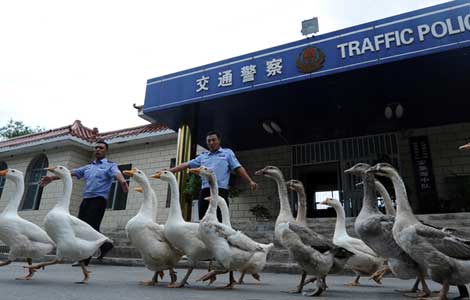
 Birds flock together to boost police ranks in Xinjiang
Birds flock together to boost police ranks in Xinjiang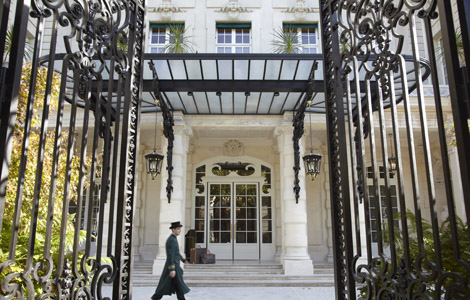
 Right royal piece of paradise
Right royal piece of paradise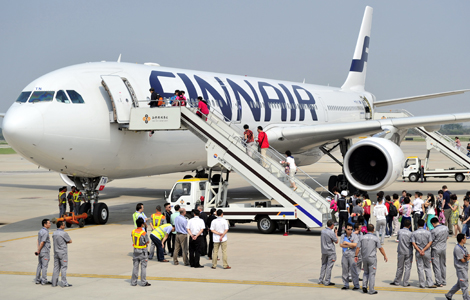
 Foreign carriers compete in 2nd-tier cities
Foreign carriers compete in 2nd-tier cities
 Urban push
Urban push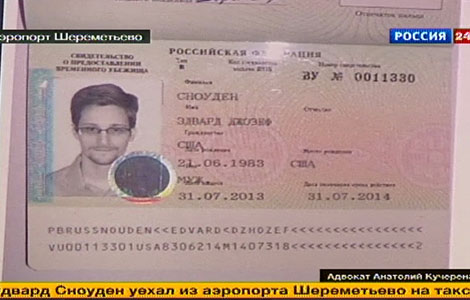
 Snowden granted 1 year's temporary asylum in Russia
Snowden granted 1 year's temporary asylum in Russia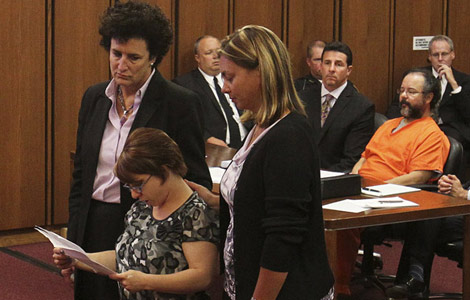
 US kidnapper of 3 girls gets life in prison
US kidnapper of 3 girls gets life in prison
 China sails through 'first island chain'
China sails through 'first island chain'
Most Viewed
Editor's Picks

|

|

|

|

|

|
Today's Top News
China, US hold dialogue on human right
FM urges restraint on sea issues
US issues travel alert over attacks
Relaxation of one-child policy still being mulled
Forum fights desertification
US urged to ease exports ban
Farmers see hope of city life in hukou reform
Singer's fake bomb threat sparks debate
US Weekly

|

|







